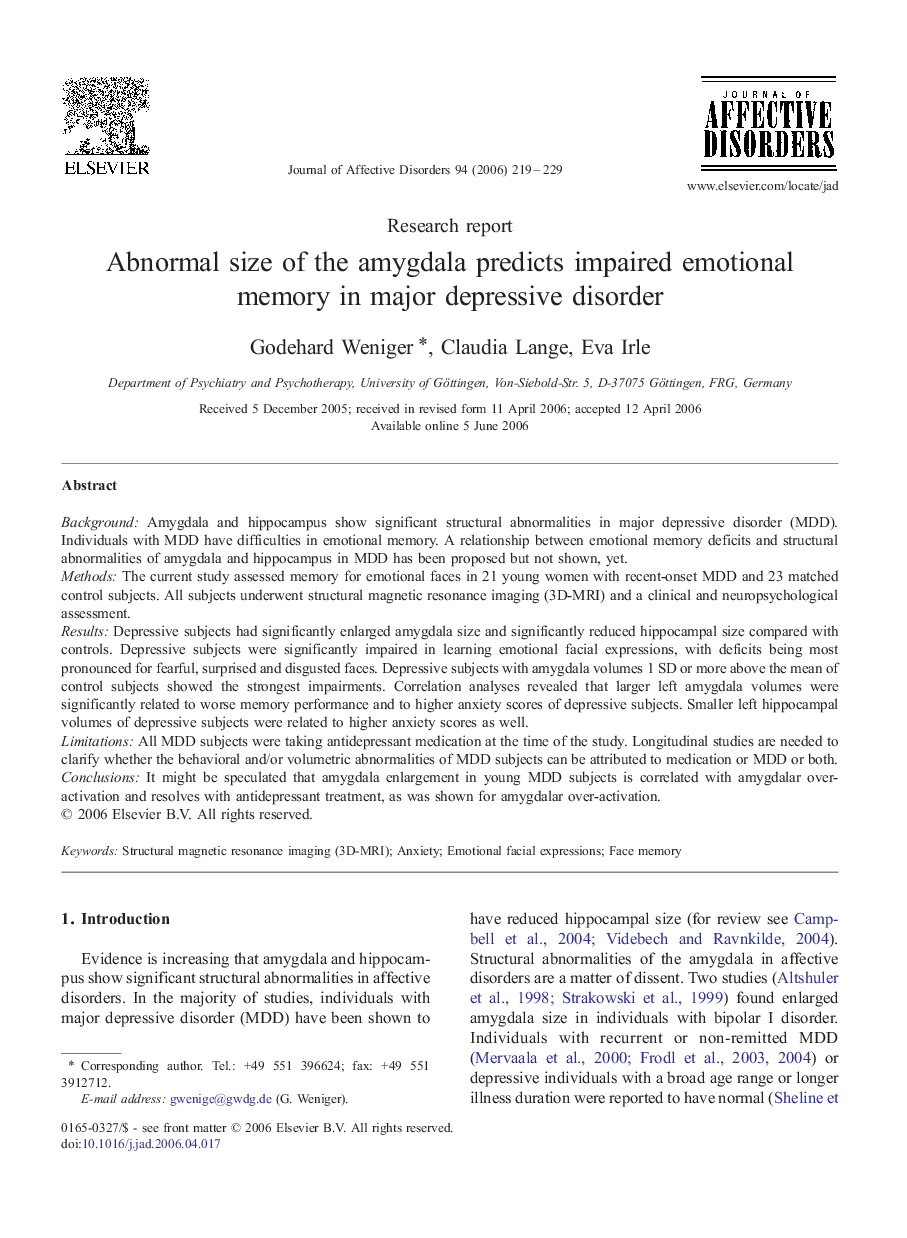| Article ID | Journal | Published Year | Pages | File Type |
|---|---|---|---|---|
| 4187930 | Journal of Affective Disorders | 2006 | 11 Pages |
BackgroundAmygdala and hippocampus show significant structural abnormalities in major depressive disorder (MDD). Individuals with MDD have difficulties in emotional memory. A relationship between emotional memory deficits and structural abnormalities of amygdala and hippocampus in MDD has been proposed but not shown, yet.MethodsThe current study assessed memory for emotional faces in 21 young women with recent-onset MDD and 23 matched control subjects. All subjects underwent structural magnetic resonance imaging (3D-MRI) and a clinical and neuropsychological assessment.ResultsDepressive subjects had significantly enlarged amygdala size and significantly reduced hippocampal size compared with controls. Depressive subjects were significantly impaired in learning emotional facial expressions, with deficits being most pronounced for fearful, surprised and disgusted faces. Depressive subjects with amygdala volumes 1 SD or more above the mean of control subjects showed the strongest impairments. Correlation analyses revealed that larger left amygdala volumes were significantly related to worse memory performance and to higher anxiety scores of depressive subjects. Smaller left hippocampal volumes of depressive subjects were related to higher anxiety scores as well.LimitationsAll MDD subjects were taking antidepressant medication at the time of the study. Longitudinal studies are needed to clarify whether the behavioral and/or volumetric abnormalities of MDD subjects can be attributed to medication or MDD or both.ConclusionsIt might be speculated that amygdala enlargement in young MDD subjects is correlated with amygdalar over-activation and resolves with antidepressant treatment, as was shown for amygdalar over-activation.
